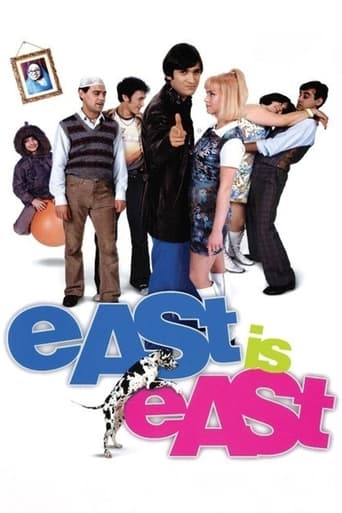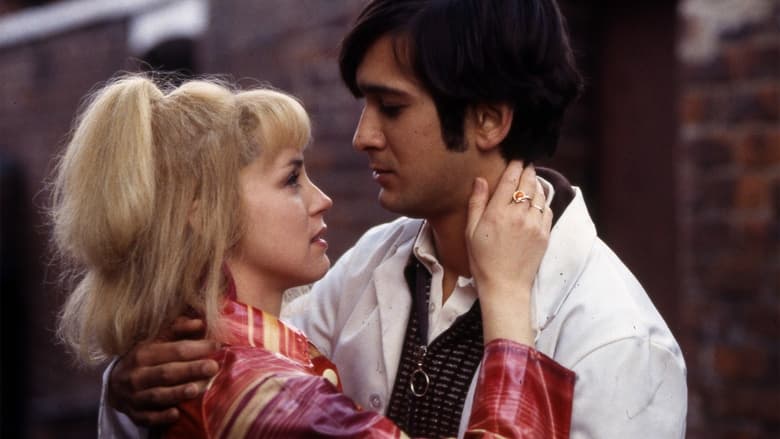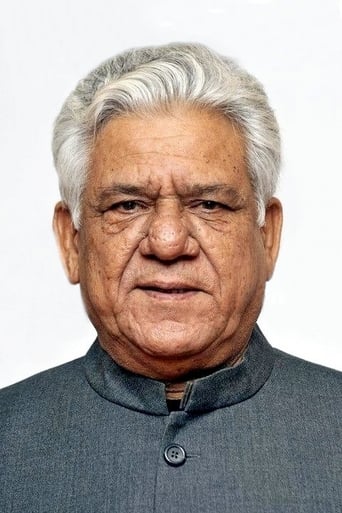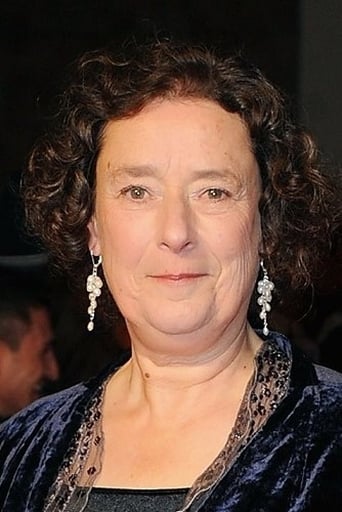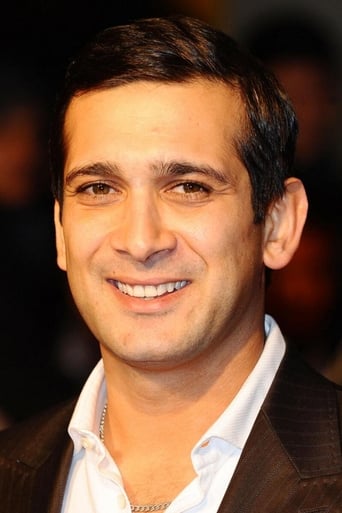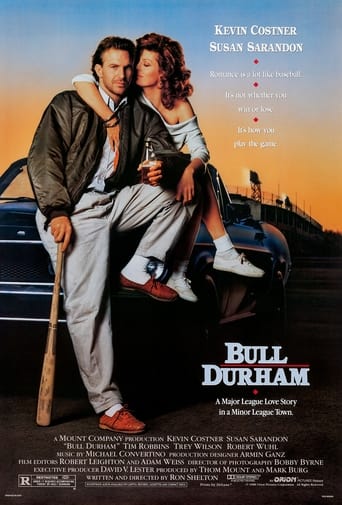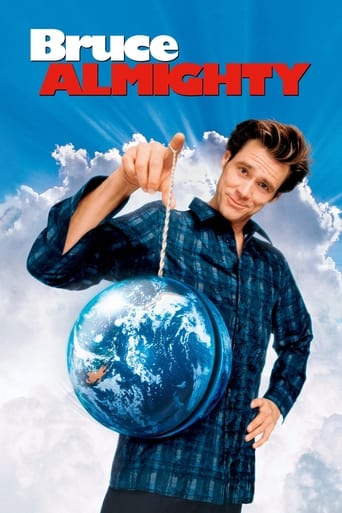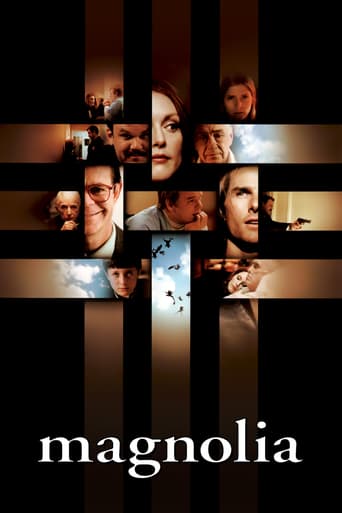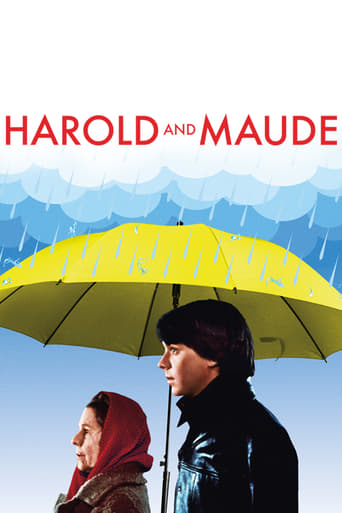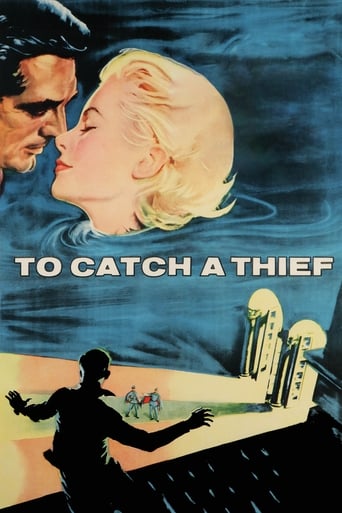East Is East (1999)
In 1971 Salford fish-and-chip shop owner George Khan expects his family to follow his strict Pakistani Muslim ways. But his children, with an English mother and having been born and brought up in Britain, increasingly see themselves as British and start to reject their father's rules on dress, food, religion, and living in general.
Watch Trailer
Cast


Similar titles
Reviews
The Worst Film Ever
Absolutely the worst movie.
This is a gorgeous movie made by a gorgeous spirit.
This is one of the best movies I’ve seen in a very long time. You have to go and see this on the big screen.
BRILLIANT FILM FILMED IN MY HOMETOWN OF SALFORD,GREATER MANCHESTER, FUNNY ,MOVING FILM
This is a dreadful drama film about a dictatorial man who uses violence against his downtrodden wife and their children.It's about 8 parts drama to 2 parts comedy, yet it was misleadingly advertised as a light-hearted comedy. The video cover had a young interracial couple on it - but the fling between those two characters is merely a tiny subplot. One poster had a smiling little boy on a space hopper. However, the child in question is unhappy throughout the film and space hoppers hardly feature in it. The American poster prominently featured a young white girl and the Pakistani characters were shown only in the distance. In reality, the only major white character is the Pakistani man's middle-aged wife.
"East Is East" can be seen as a return to the tradition of "kitchen sink realism", which was responsible for so many fine British films in the fifties and sixties. It has a number of similarities with one of the last of those films, "Spring and Port Wine". Both films are set in industrial towns in Lancashire (Salford here, Bolton in the earlier film). Both are set in the same period, the late sixties/early seventies. And both are centred upon a strict, autocratic father who finds his authority being challenged by rebellious children. There are, however, two major differences. One is that the action of "Spring and Port Wine" took place around the time it was made, whereas "East Is East" is a period piece, made in 1999 but set in 1971. It relies heavily on nostalgic period detail, featuring the fashions, pop music (The Hollies), television ("The Clangers") and even toys (spacehoppers) of the era, although there are a couple of errors. Enoch Powell, for example, is seen on television referring to Alec Douglas-Home as Conservative Party leader (he resigned from that office in 1965) and there is a reference to the half-crown, a pre-decimal coin which ceased to be legal tender after 1969. The other major difference is that "East is East" revolves around the question of race, something that was quite absent in "Spring and Port Wine". The father in this case is Zahir "George" Khan, the Pakistani Muslim owner of a fish-and-chip shop, who has lived in England since 1937. He is married to Ella, a white British woman, and they have seven children, six sons and a daughter. (There may, in fact, be some doubt about the legitimacy of their marriage under English law; we learn that he has a first wife still living in Pakistan, from whom he has never been formally divorced). The film starts with the oldest son Nazir refusing to go through with an arranged marriage, leading Zahir to disown him. (We later learn that Nazir is in fact gay). With the exception of Maneer, who is a devout Muslim, the remaining children, who were born and grew up in Britain, see themselves as British rather than Pakistani, and resent their father's insistence that they should follow Pakistani customs of dress, food and religion. Some of them, for example, go so far as to drink alcohol and eat pork, but always behind their father's back. It should be noted that Zahir does not always follow his own precepts; he is generally known as "George", but has given all his children Muslim names and his sons Abdul and Tariq have to hide from their father the fact that among their English friends they are generally known as "Arthur" and "Tony". (Nazir goes by the name "Nigel"). Similarly, although George has himself married a white woman he would be horrified to know that Tariq has a white girlfriend. There have been a number of other recent comedies about the Asian immigrant communities in Britain and their relations with the indigenous British community- "Anita and Me" and "Bend It like Beckham" are two other examples which come to mind- but "East Is East", based on a play by Ayub Khan-Din, himself of Asian ancestry, takes a harder, more critical, look at Asian culture, especially at practices such as arranged marriages. Rafe Crompton, the central character of "Spring and Port Wine" had, for all his strictness as a father, a basic decency and kindness which enabled the Crompton family to stick together when threatened by crisis. George, by contrast, is an overbearing domestic tyrant who bullies his children and beats his wife when she tries to stand up for them. He even assaults the normally loyal and obedient Maneer. He resents the racist attitudes of his English neighbours, but displays similar prejudices himself, against Hindus ("cow-worshipping bastards!") and even against his fellow-Muslims from East Pakistan, as Bangladesh was then known. ("Bengali baboons!") Imagine the furore which would have been unleashed had epithets like these been uttered by a white character. At times he resembles not Rafe Crompton but an Asian version of Alf Garnett, the monstrous anti-hero of "Till Death Us Do Part". Ayub Khan-Din took his title from a poem by Kipling, "East is East and West is West, and never the twain shall meet". Kipling's theme was the differences between Eastern and Western culture, so the title is appropriate to a film on the same theme, although since Kipling write these lines East and West have indeed met in all sorts of ways he never dreamed of. In the context of the film, in fact, the implication is that when East and West do meet there should be some two-way cultural exchange, a suggestion that it is in nobody's interests for immigrant communities to try and live in some sort of monocultural ghetto, rejecting Western influences, as George is trying to. "East Is East" is sometimes described as a comedy, and there are certainly a number of amusing scenes, such as the ones in which George- who clearly has not learned his lesson following the debacle with Nazir- tries to arrange marriages for Abdul and Tariq to the two daughters of a Pakistani family from Leeds, despite the fact that the girls are fat and ugly, their father rude and arrogant and their mother a monstrous snob. If it is a comedy, however, it is a rather bleak and bitter one; George is a deeply unpleasant individual and we are left uncomfortably aware that attitudes like his could all too easily lead to tragedy. If we laugh at him, it is a very uneasy form of laughter indeed. 7/10
I just saw this incredible ensemble movie - I was most struck by the amazing ensemble acting by the entire cast, mostly unknown to me (Archie Panjabi is an emmy winner for her role on "The Good Wife", and I have seen Linda Bassett in a few movies). I absolutely hated the father - he reminded me of my late father, who was also a bully who was enraged by his lack of ability to control others completely - Om Puri gives a ferocious performance - I would be curious to know what the actor felt about his part, did he see him (as I do) as a villain or did he see him as "right"? I found Linda Bassett's role a bit infuriating: those women who stay with their abusive disgusting husbands no matter what. I loved how rebellious the kids were, yet they stayed stuck under this tyrant's thumb. But they could escape into British culture, the neighborhood, school, music, culture that was not Pakistani. The gay son was certainly stereotypical but I still found it daring - it's rare to see a happy gay couple (who also appear to be "married") in movies from before 2000. Meena's dance is wonderful and fun. Damien O'Donnell's direction makes me wish he could make more movies (I've also loved "Rory O'Shea Was Here", which was originally titled "Inside I'm Dancing", but his other few films don't seem to have made it over here) - his direction is incredibly self-assured and brilliant, it was his feature film debut (he had made short films and commercials previously). I especially loved the feel of the film, the production design, the street - interestingly, it was filmed at Ealing Studios, 40 years after the last of the Ealing films were produced there. While this film can get my blood boiling - I wished somebody would run the father over with a car or do anything to get him to STOP his bullying disgusting behavior. (Why is he married to her? It's a real mystery. If he's so "Pakistani", why isn't he married to a Pakistani woman?) But that's what's so great about this movie: it can be simultaneously infuriating AND fascinating! I absolutely loved this movie!!!

